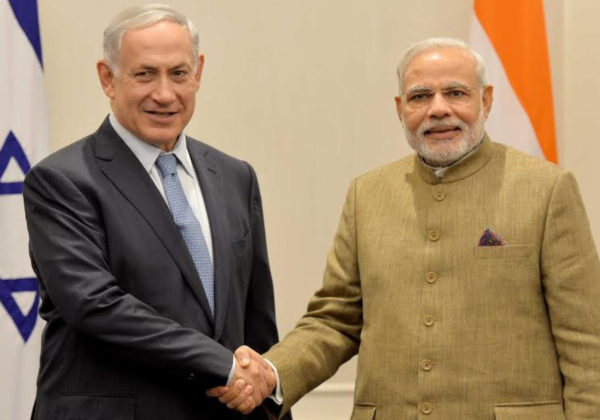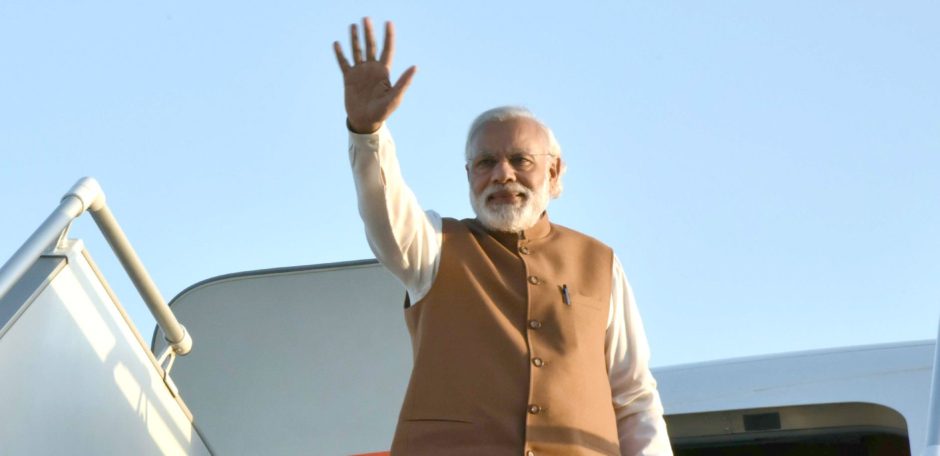It was, as Prime Minister Narendra Modi of India effusively described it, a “groundbreaking” visit.
Modi, the first Indian prime minister to set foot on Israeli soil, was in Israel from July 4-6, visiting Jerusalem, Tel Aviv and Haifa and meeting Israeli decision-makers such as Prime Minister Benjamin Netanyahu and President Reuven Rivlin, who visited India last year.
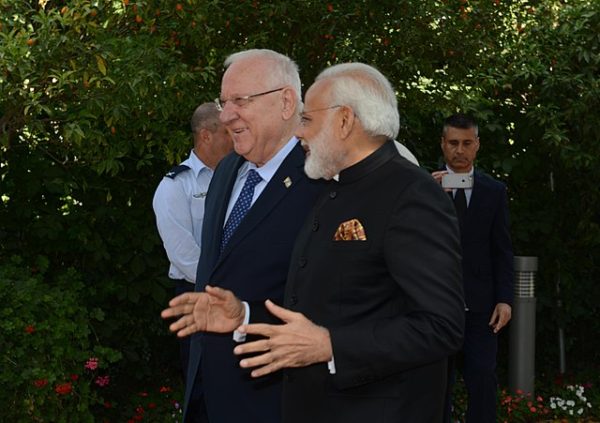
Signalling the importance he attached to Modi’s precedent-setting visit, Netanyahu cleared his schedule and kept him company on almost all his trips around the country.
In terms of optics, the visit was highly successful.
Netanyahu greeted Modi warmly upon his arrival at Ben-Gurion Airport. “We’ve been waiting for you a long time,” he declared. “We’ve been waiting nearly 70 years, in fact.”
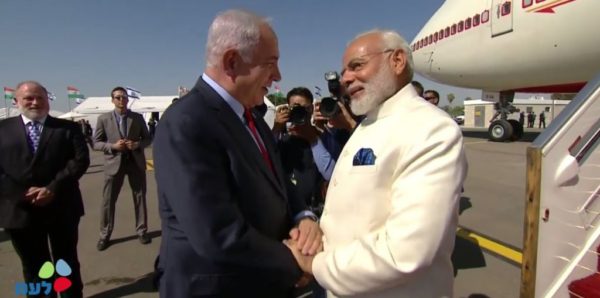
Reciprocating Netanyahu’s sentiments, Modi later said, “Israel is a real friend, and I have really felt that feeling of kinship. I feel absolutely at home here.”
It was not empty rhetoric. Far from it.
Since Modi’s accession to power three years ago, Israel and India have solidified a relationship that was once cool at best and has since greatly matured.
Much to the disappointment of the Zionist movement, India voted against the 1947 United Nations plan to partition Palestine into a Jewish and Arab state. India formally recognized Israel in 1950, allowing Israel to open a consulate in Bombay in 1953. But India, a member of the anti-Israel non-aligned movement, did not establish formal diplomatic relations with Israel until 1992.
In the interim, India adopted a resolutely pro-Arab policy and kept Israel at arms length. India was reliant on Arab oil. Millions of Indian nationals worked in the Arab world, sending remittances back to India. India could not ignore the feelings of its large Muslim population.
India began shifting its position toward Israel under the premiership of P.V. Roa. This coincided with India’s adoption of free market reforms and the collapse of one of its closest allies, the Soviet Union. With the end of the Cold War, India sought to improve its relations with the United States and its closest ally in the Middle East, Israel.
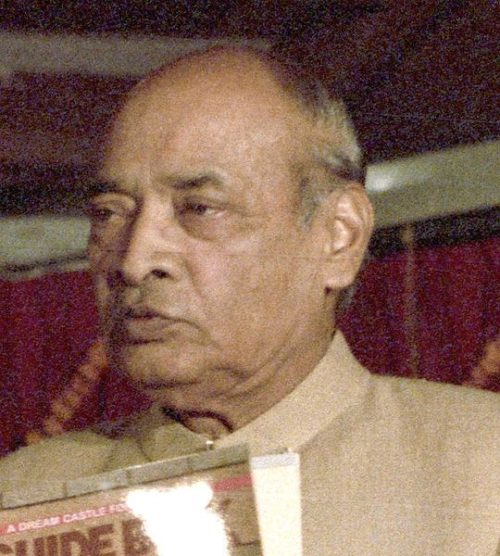
By then, India had already cooperated with Israel in the field of counter-terrorism and understood that the two nations faced similar threats and shared democratic values.
In 2003, India invited the prime minister of Israel, Ariel Sharon, on a visit, the first by an Israeli head of state. Since then, a succession of Israeli and Indian government ministers have exchanged visits as bilateral relations have blossomed and the volume of trade has expanded from $200 million in 1992 to $5 billion last year.
Modi, the leader of the Hindu nationalist Bharatiya Janata Party, visited Israel in 2006 in his capacity as chief minister of Gujarat province. Modi had persuaded Israeli businessmen to invest in Indian projects, and he was impressed by Israel’s high-tech sector, its arms industry and its expertise in agriculture and water management.
Since his first visit eleven years ago, the scope of Israel’s cooperation with India has widened considerably, extending into areas ranging from food security to cyberspace.
Israel has become India’s third most important arms supplier after the United States and Russia. Israel has sold India a long list of weaponry, from radar equipment to missiles. A few months ago, India signed a record-breaking $2 billion contract with Israel Aerospace Industry. IAI will supply India with air defence systems and anti-tank missiles.
At the United Nations, India has shifted course, no longer automatically supporting anti-Israel resolutions.
It’s telling that, during his latest visit to Israel, Modi did not even bother paying a courtesy call to Palestinian Authority President Mahmoud Abbas in Ramallah. India, however, is still supportive of the Palestinian cause. Abbas paid a visit to India in May and Modi assured him he’s in favor of “a sovereign, independent, united and viable Palestine coexisting peacefully with Israel.”
During his visit to Israel, Modi did not refer to the Palestinian question at all. Instead, he and Netanyahu focused on bilateral issues. They signed a number of joint agreements pertaining to agriculture, water and satellite technology and announced the creation of a $40 million innovation fund. As well, Netanyahu and Modi deepened defence cooperation between Israel and India.
Judging by Modi’s path-breaking visit, India has belatedly but fully normalized its relations with Israel.
